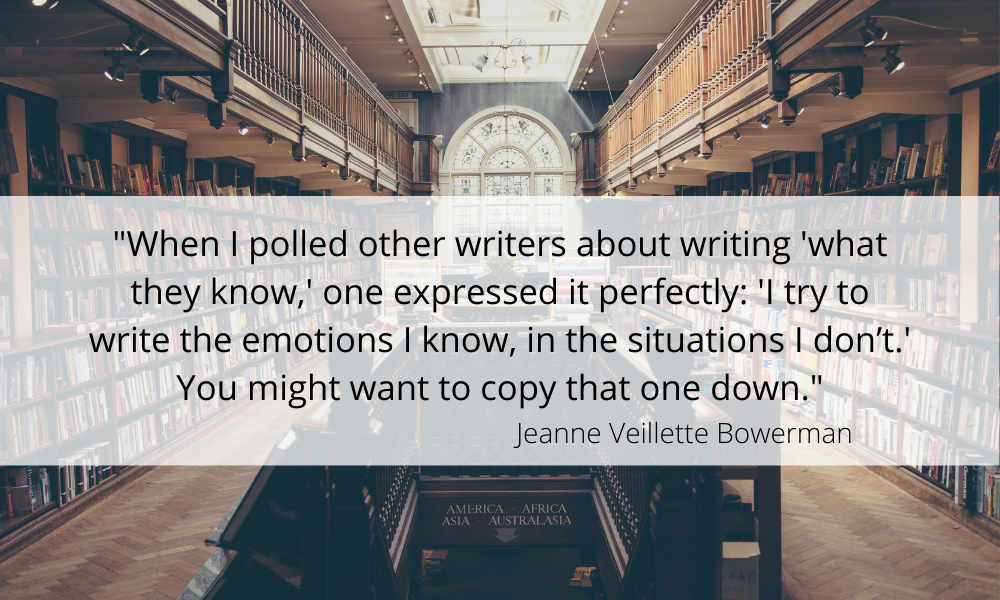Great Endings
You can craft all the Oscar-winning dialogue you want, but if your last scene isn’t up to snuff, your movie won’t make it.
Inevitable and yet unpredictable. That's what a great ending has to be—and there's nothing new about that. More than 2,500 years ago Aristotle taught dramatists the exact same thing.
Cut to the modern day writer. Togas have given way to jeans and T-shirts, but the aim remains the same. Writers must end a movie in a way that will not only satisfy but also lift the entire experience from mediocrity to greatness. In all entertainment, whether on stage or in fireworks, there is nothing like the big finale, and an audience left breathless as they take in a climax of final sounds and images.
But how does one give the audience what they expect and yet what they don't expect at the same time? Is this some sort of writer's Zen koan?
"Endings are a bitch," says writer and former ABC Movies executive Renee Palyo. "It's very hard to find a way to both surprise and satisfy an audience."
We've all seen movies with endings that left us unsatisfied. And note: Those endings come despite studios' willingness to invest millions of dollars testing their films and tinkering with the endings, even going so far as to reshoot scenes, which can mean reassembling a cast and crew who have moved on to other work.
Why are endings so hard? Why do critics say so many times, "I enjoyed the characters and situations, but it all fell apart for me in the end?"
There are no endings
To some degree, endings and beginnings don't really exist in life. We humans impose them like math formulas to give some order and understanding to our stories and the way we perceive ourselves.
Even the perspective of birth as a beginning and death as an ending is an arbitrary choice of starting and ending points. There are no "natural" beginnings and endings, only significant events that we attach meaning to, all of which, however, is transitory. Death makes a fine place to start (Citizen Kane), just as a pregnancy or a baby's birth can be a good end (Hannah and Her Sisters).
Ideally, a writer chooses to close after the lead character's crisis has reached a climax, or turning point. This is followed by a resolution (sometimes called a denouement), the state of things following a decisive change. That's the abstract explanation. But writing is an art in which the artist reveals what he or she values. In imposing a beginning and ending, a writer is revealed in that choice. What you believe (or at least what you claim to believe) is presented and exposed in the artificiality of an ending.
Perhaps even a movie studio is revealed when a film is altered to satisfy audience testing. Originally, Fatal Attraction had the Michael Douglas character charged by the police for the Glenn Close character's death. After audience feedback, however, this was changed to an ending in which the adulterous husband was portrayed as someone who suffered disproportionately and was given a second chance with his wife.
Some critics complained the final ending was pandering to the public, or giving the audience what they wanted even if the ending didn't fit the story. The bottom line: The studio wants to make money and, in this case, that's revealed in their choice.
Endings provide answers
There exists in movies—and in all storytelling—an unspoken promise of where the film is going. Writer Carl Kurlander (St. Elmo's Fire) says a good ending answers a dramatic question set up at the beginning. The choices of texture, comedy, grittiness, cuteness or whatever else all further the dramatic question.
In the first act we learn what a character wants, as well as the nature of what this movie is about—sometimes known as its theme. By the second act, we see the depths and complexities of conflict this character must overcome to gain what he or she wants. In the third act, the high point of the crisis must be reached. It's here that the character will succeed or fail against the conflict. From that battle will finally come an answer to the dramatic question raised in the beginning.
A classic example of a dramatic question is "Who am I?" This is the central inquiry in the ancient Greek play Oedipus Rex. It is also the driving question asked in modern films like Flirting With Disaster, as well as the dramatic question of the movie Spiderman.
Although all three stories ask the same question, each varies in character, tone and plot. Consequently, each film arrives at a different answer to the main character's search for internal identity.
In all three Godfather movies, the dramatic question is whether it's possible for a man to be good if he invests himself in evil. And all three films answer the question the same way. Al Pacino's character, Michael, who desperately wants to keep his family, is left cut off and alone. The first Godfather movie ends with Diane Keaton, who plays Michael's wife, watching her husband's door close. In the sequel, Michael is alone and miserable, plagued by guilt over his fratricide. And the third finishes with Michael dying alone without benefit of an innocent grandson chasing him as his father Don Corleone had.
How do we know if the movie answers the question correctly? That comes from the character's fight for what he or she desires.
According to Kurlander, the lead character must exhaust all possibilities by the end of the movie. For instance, The Graduate has Dustin Hoffman's character stealing the bride at her own wedding as the only thing left to do, at the point of having played out all other possibilities. This feeling of inevitability, that nothing else is possible, helps an audience feel satisfied.
Chris Bertolini, screenwriter for The General's Daughter, adds, "Endings should be the culmination of everything the writer is trying to say."
Predictability
For the most part, it is not difficult for a literate audience to generally predict the ending, but there is good predictability and there is bad predictability. The tone of the beginning and middle indicates where the story is heading.
For example, in the James Bond movies, there is no doubt that in the end the villain will be squashed. That is inevitable. What we sit through to discover is the unexpected way Bond achieves victory. The screenwriters for the Bond films and other action-thrillers must find some sequence of action that we have not seen before.
In The Sixth Sense, it's fairly easy to predict that in the end, Bruce Willis will come to some settlement with his wife regarding the troubling distance between them. That's inevitable. But it does not occur in a way the audience expects. The illusive appearance of her toying with an extramarital affair is now revealed in its reality: She cries herself to sleep watching their wedding video not out of irony but out of painful loss.
"In Butch Cassidy and the Sundance Kid," says Bertolini, "there's an inevitability about the last 10 to 15 minutes. It's no surprise what's coming. Yet in that time we feel the dying of the Old West as Butch and Sundance are crouching low, reloading and unaware of the hundreds of soldiers outside waiting for them."
Bad predictability comes when the final showdown leads to nothing new. Beyond feeling trite or cliche, bad endings lack an insightful answer to the dramatic question the movie asks.
A modern attempt to answer the problem of predictability has been to try gimmicks such as the false ending. In the past decade we've seen this particularly in thrillers as an attempt to surprise the audience by making things feel resolved, and then going past it to a new stage of resolve. The problem becomes that once an audience knows this gimmick, it suspects the fake ending. "I knew he wasn't really dead," you hear the audience whisper, disappointed.
Twists
The type of ending that gets held up as "great" the most often is the twist ending. A twist can change everything we've been led to believe as true, and is an unexpected yet logical answer to the dramatic question. Based on her experience, Palyo says, "Endings are always about finding the twist."
The careful balancing act here is that writers must use a surprise turn from where an audience believes it's being led, but not violate the promise or the tone of the first two acts. The new insight gained by either a lead character or the audience can be plot driven, character based or even come from the theme, but it must fulfill the expectations set up by the opening dramatic question.
The Sixth Sense does this by revealing the Bruce Willis character to be a ghost, in addition to the boy Cole learning his mother will continue to love him despite his peculiar power.
In Tootsie, the Dustin Hoffman character, having gained insight into what it is to be a woman, can now pursue the woman he loves.
In the James Bond movies, the insight tends to belong to the villain, since he or she is the one that must learn how hubris leads to defeat. We already know Bond is insurmountable, but we watch to experience the villain learning his lesson about the folly of evil.
Terms of Endearment, Chinatown, The Usual Suspects, It's a Wonderful Life, Planet of the Apes, The Sting and many other well-regarded movies consist of moments of insight at the climaxes. Their endings are what people still talk about when they recall these movies.
Bertolini sums it up like this: "The endings I remember are the ones that make me feel something."
This article appears in the December 2002 issue of Writer's Digest.









